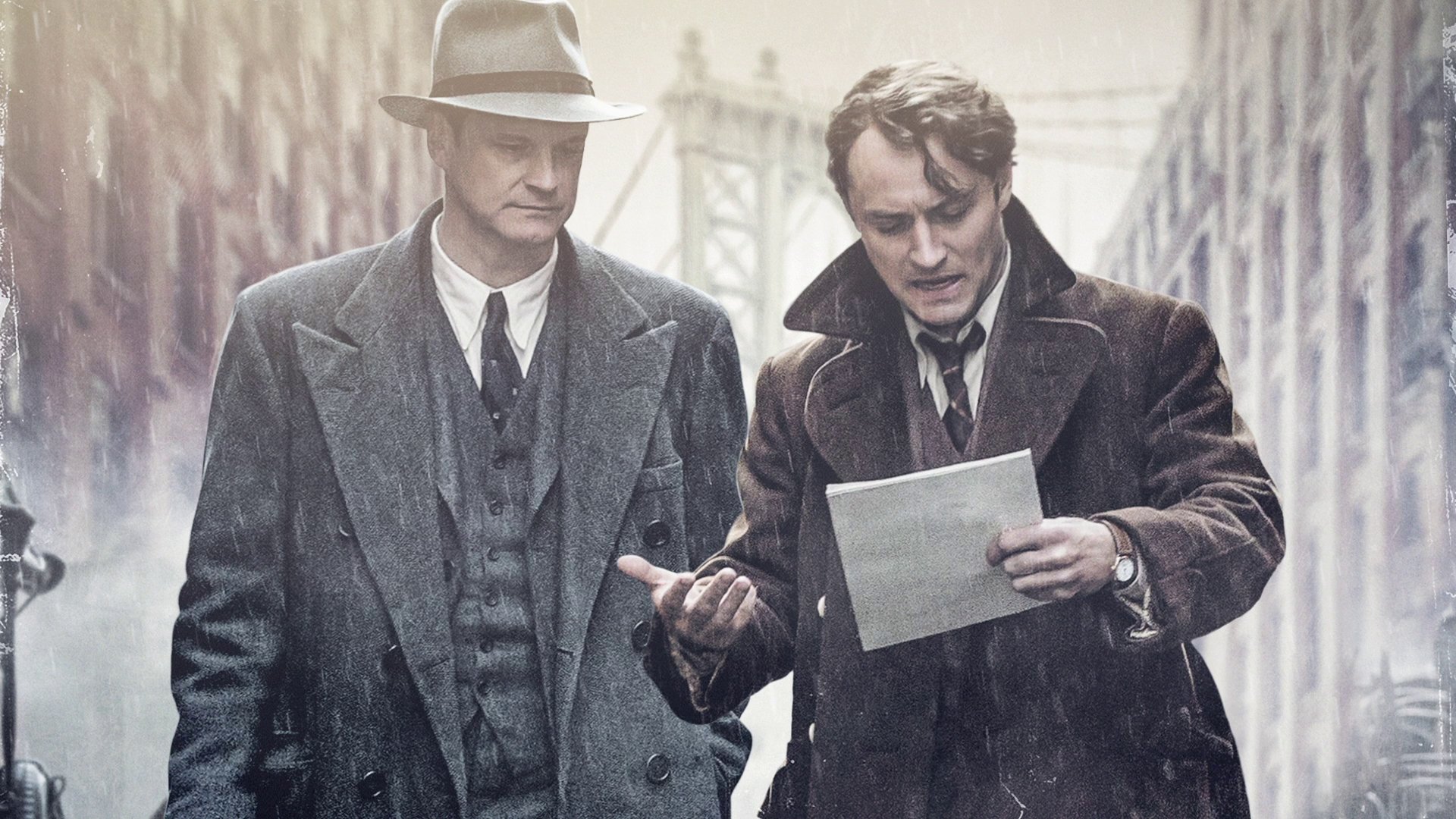
2016
Genius
History, Drama
7.0
User Score
714 Votes
Status
Released
Language
en
Budget
$0
Production
Pinewood Pictures, Desert Wolf Productions, Michael Grandage Company, Riverstone Pictures, Summit Entertainment
Overview
New York in the 1920s. Max Perkins, a literary editor is the first to sign such subsequent literary greats as Ernest Hemingway and F. Scott Fitzgerald. When a sprawling, chaotic 1,000-page manuscript by an unknown writer falls into his hands, Perkins is convinced he has discovered a literary genius.
Review

Rangan
8.0
**Behind a great writer, there's a genius editor!**
I felt the title 'Genius' was not appropriate for how the story revolved in the film. It was more like a commitment and priority given to those undertaking than any other stuffs and that's why it looked like a genius from others eyes. Though I won't deny the experience always comes very handy. This film tells the story of ant editor and how he meets one of the best writers of his time. But they two together give the literature world some masterpiece works and that's the tale the film very genuinely presented to us.
This story takes place around the 1930s. An enthusiastic writer and a genius editor develop a strong bond, especially from their professional, but it goes beyond that. When both the families struggle while these two men completely dissolved with their works. So the takes from different angles about the different issues nicely revealed.
This biographical film is nothing short for any inspiration if you are looking for some. If you are a book lover, then this is not to be missed, especially if you have read the books by Thomas Wolfe. It's unbelievable that the film was made by a first time director. The actors, including the Colin Firth and Jude Law in the major roles was exceptionally good. We have seen many great films about the authors, so for a difference this film focused on an editor. It stands on the line of Bryan Cranston's 'Trumbo'. I hope you won't miss it, because it is so good if you appreciate the real life achievers, even those standing behind someone's achievements.
_8/10_
Read More tmdb28039023
6.0
The genius of Genius is that, although it revolves around the publication of Thomas Wolfe’s novels Look Homeward, Angel and Of Time and the River, it’s not a film about writing but about editing; accordingly, editor Max Perkins (Colin Firth) is devoted as much time and importance as is Wolfe (Jude Law) himself.
Both have significant others, and we know, because they are played by Nicole Kidman and Laura Linney, just by looking at them that both Wolfe’s lover Aline Bernstein and Perkins’s wife Louise have a major presence in each man’s life – these are truly the women that stand behind great men, if I may use a non-empowering figure of speech. Perkins’s greatness lies in his ability to recognize greatness in others; prior to Wolfe, he ‘discovered’ Hemingway and Scott Fitzgerald, the latter played briefly but solidly by the always effective Guy Pearce).
Aline and Louise are not muses, however, and Genius is only a love story in that it chronicles Perkins and Wolfe’s, for lack of a better term, bromance. Their marriage is perfect because Wolfe believes, like Picasso, that inspiration should find you working (a belief which becomes apparent when he strolls in Perkins’s office with Of Time and the River’s 5,000-page first draft), while Perkins is a staunch proponent that less is more.
The film’s greatest insight is that, whereas writing is a lonely one-man endeavor, rewriting is ideally a two-person job because you need at least one other set of ears to listen, and another mouth to provide that invaluable commodity known as feedback – but it can’t be just anyone either, and it’s Wolfe’s good fortune that he finds in Perkins his, to borrow Stephen King’s term, ‘ideal reader;’ the one who will encourage him, to borrow another Kingian tenet (who in turn borrowed it from someone else), to ‘kill your darlings’ (“even when it breaks your egocentric little scribbler’s heart, kill your darlings”).
Thus, the movie’s best sequence has Perkins and Wolfe whittling a paragraph from 232 words down to just 25. I especially liked how Wolfe uses onomatopoeia to illustrate his character’s falling in love, and Perkins asks him, rhetorically, “The whoosh, the clatter. Is that the point?” – and of course it isn’t, considering that “So quickly did he fall for her that no one in the room even heard the sound;” if no one heard it, who cares what kind of sound it was, right?
Now, I don’t know how faithful to the actual events Genius is (my guess is not much; moreover, one wonders how the literati might have felt about a movie wherein Perkins, Wolfe, Fitzgerald, and Papa Hem are all played by British actors), but that’s beside the point; unlike most biopics about writers in particular and artists in general, this film is faithful to the creative process.
Read More 



